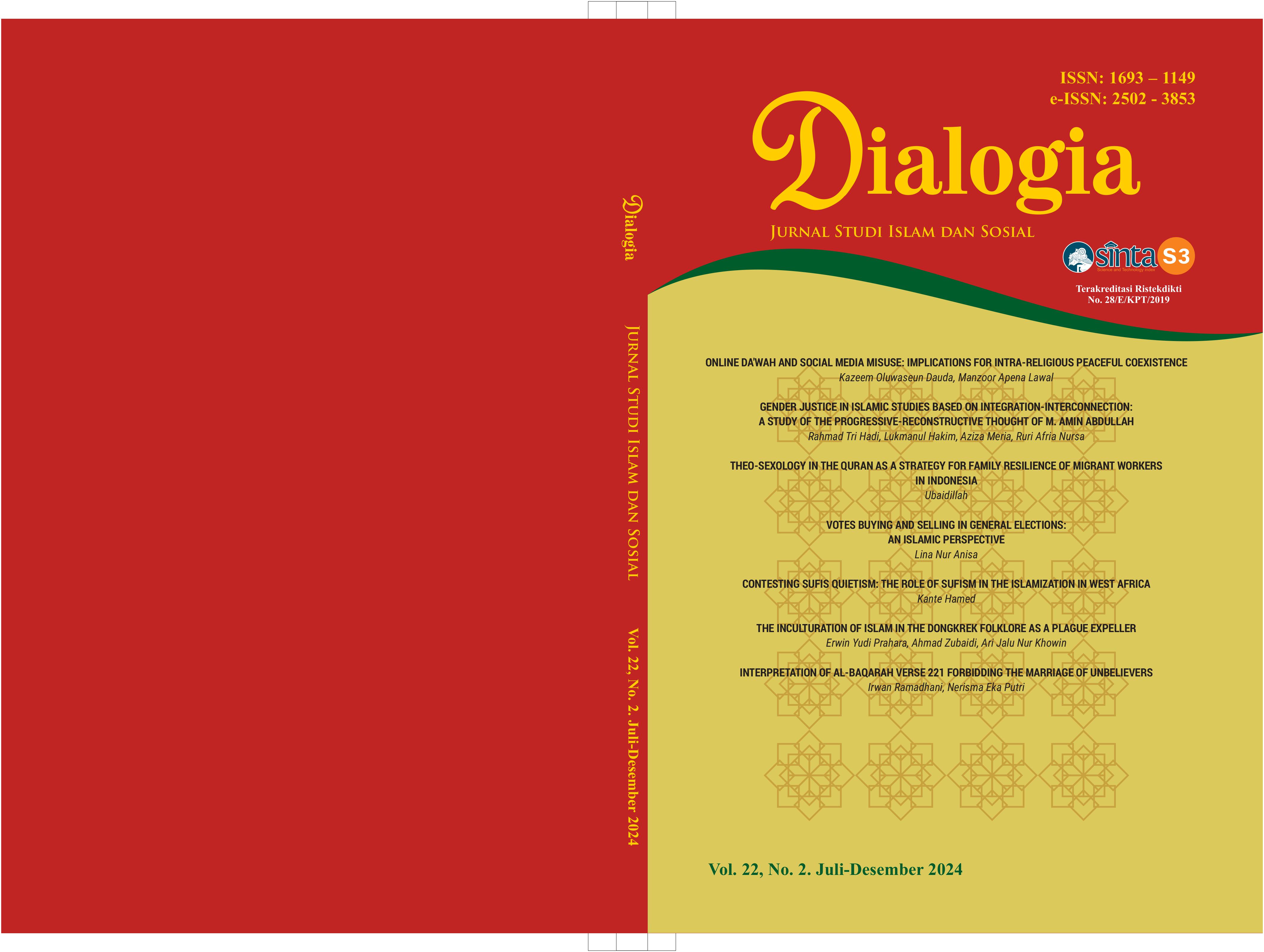The Inculturation of Islam in the Dongkrek Folklore as a Plague Expeller
DOI:
https://doi.org/10.21154/dialogia.v22i2.9847Abstrak
Islam is a theological teaching based on God's revelation, different from culture, which is a product of human creation. This study uses qualitative methods with discourse analysis, linking field data, opinions, and theories to understand the inculturation of Islam in the Dongkrek folklore in Mejayan. The results align with Dundes' theory, which states that the Dongkrek folklore functions to strengthen community solidarity and uphold norms. Dongkrek combines Javanese ritual elements and Islamic prayers, demonstrating a process of inculturation in this ritual to expel the plague in the village of Mejayan. Additionally, Dongkrek serves as a coercive and supervisory tool, projecting collective imagination and ensuring adherence to community norms. The Mejayan government strives to maintain Dongkrek’s optimal function in strengthening the social life of the community, which is harmonious, peaceful, and united. Dongkrek illustrates the blending of Javanese culture and Islamic teachings, showing clear evidence of inculturation in this ritual.
Unduhan
Unduhan
Diterbitkan
Terbitan
Bagian
Lisensi
Hak Cipta (c) 2024 Ari Jalu Nur Khowin, Erwin Yudi Prahara, Ahmad Zubaidi

Artikel ini berlisensiCreative Commons Attribution-NonCommercial-ShareAlike 4.0 International License.
Dialogia : Jurnal Studi Islam dan Sosial allow the author(s) to hold the copyright without restrictions and allow the author(s) to retain publishing rights without restrictions, also the owner of the commercial rights to the article is the author.









